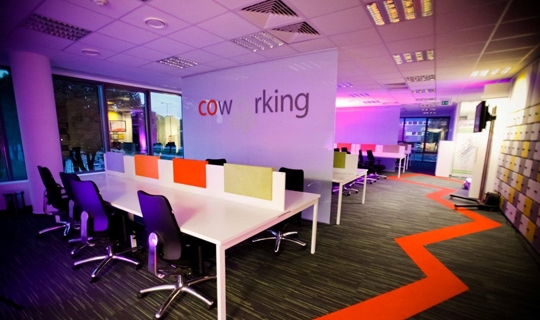StartupYard FastLanes two Startups from Krakow
We visited HubRaum in Krakow last week, and “FastLaned” two very interesting startups while we were there. This was the penultimate stop in our tour of 6 cities, including Pristina, Sofia, Bucharest, Prague, and next week, Warsaw.
While it was tougher to generate interest from Polish startups in StartupYard, we had expected this. StartupYard has never accelerated a Polish startup, and part of the reason is that Polish startups are a bit more spoiled for choice than their counterparts in Central and Eastern Europe.
StartupYard visits @HubraumKrakow for a great breakfast! pic.twitter.com/RnUHQdyeBQ
— StartupYard (@startupyard) September 29, 2015
But we encountered the same kinds of issues in Polish startups as we do all over Central Europe. Just like Romanian, Bulgarian, and Kosovan startups we’ve met, as well as our own Czech startups, communication and positioning of global tech products remains a failure point for Polish startups as well.
According to several of the mentors I talked to a HubRaum, the situation is not always helped by the fact that Polish startups are in a much bigger market than their Czech counterparts, meaning that they can avoid the problems of international competition for longer.
Accepting the Premise of the Question
One trend that I’ve noticed throughout our roadshow, and which was on particular display in Krakow, was founders’ generally being unequipped to answer doubts or hostile questions from the audience. We often call this a “non-question question,” and it usually consists of an audience member’s opinion –always hostile to the general idea or area of the startup– followed by a sort of “what do you think about that,” phrase to make it look like a legitimate question, rather than a statement.
For example, we had one pitch where a startup was working on a live-streaming social application for events. The question came like this: “Don’t you know that there are serious privacy and copyright concerns when it comes to live streaming? Don’t you worry that you’ll be sued?” This is marginally a question, but it was obvious that the person asking it was down on the idea, and wanted to point out a “fatal flaw” she had discovered. This is often the case: a doubter seizes on one issue surrounding the technology or the business, and seems to declare that therefore it will never work.
There are two ways to answer a question like this, but most startups don’t know them. First, you can accept the premise of the question, meaning that you agree that the problem does exist as described, and then talk about how and why that problem can be overcome. This is a difficult way to answer a non-question, because it acknowledges that the doubter is correct, and then takes an uphill route to show why this doesn’t matter as much as they think.
In my example above, the founder could state that while there are privacy concerns, the app would somehow have privacy protections built in, or would not be allowed to be used in such a way as to disrupt anyone’s privacy. A similar answer might be found for copyright concerns– perhaps there is a legal reason why livestreaming events is considered legally ok, or perhaps there is another solution.
Don’t Accept the Premise
The second way, which is much safer but less often practiced by startups, is to not accept the premise, and answer the question on your own terms. That answer looks like this: “this is a new area of technology, and concepts of privacy and copyright are quickly evolving. Clearly livestreaming will be an important area of innovation in the future, and we are working on the best and most responsible ways of bringing that technology to our users safely and legally.”
This is a non-answer for a non-question, but it is also generally the best answer. Just as the questioner does not know what the legal or social situation will be in a few years, neither do you. If technologists and inventors let themselves be stopped by the possibility that what they’re doing may lead to some legal wrangling in the future, then they really shouldn’t be working on new technologies at all. Disruption is exactly what it sounds like- it doesn’t go with the flow.
“Nobody Will Notice”
This is probably the worst possible answer to a non-question, but it’s one we’ve now heard at least twice from founders pitching on stage. We hear it even more in private meetings with founders. The founder accepts the premise and accepts the outcome suggested by the non-question. There is nowhere else to go, so the founder simply says that for whatever reason, nobody will notice, and everything will be fine.
Obviously this doesn’t inspire much confidence. The founder is basically saying that their technology is non-disruptive, and will never be interesting or popular enough to bother anyone. If it is a live-streaming app, it will never have a lot of fans or make a lot of money, meaning that anyone with copyright or privacy concerns won’t have much to worry about.
That’s obviously not the road you want to go down when pitching your ideas. So go with option two, and don’t accept the premise of the question in the first place.




